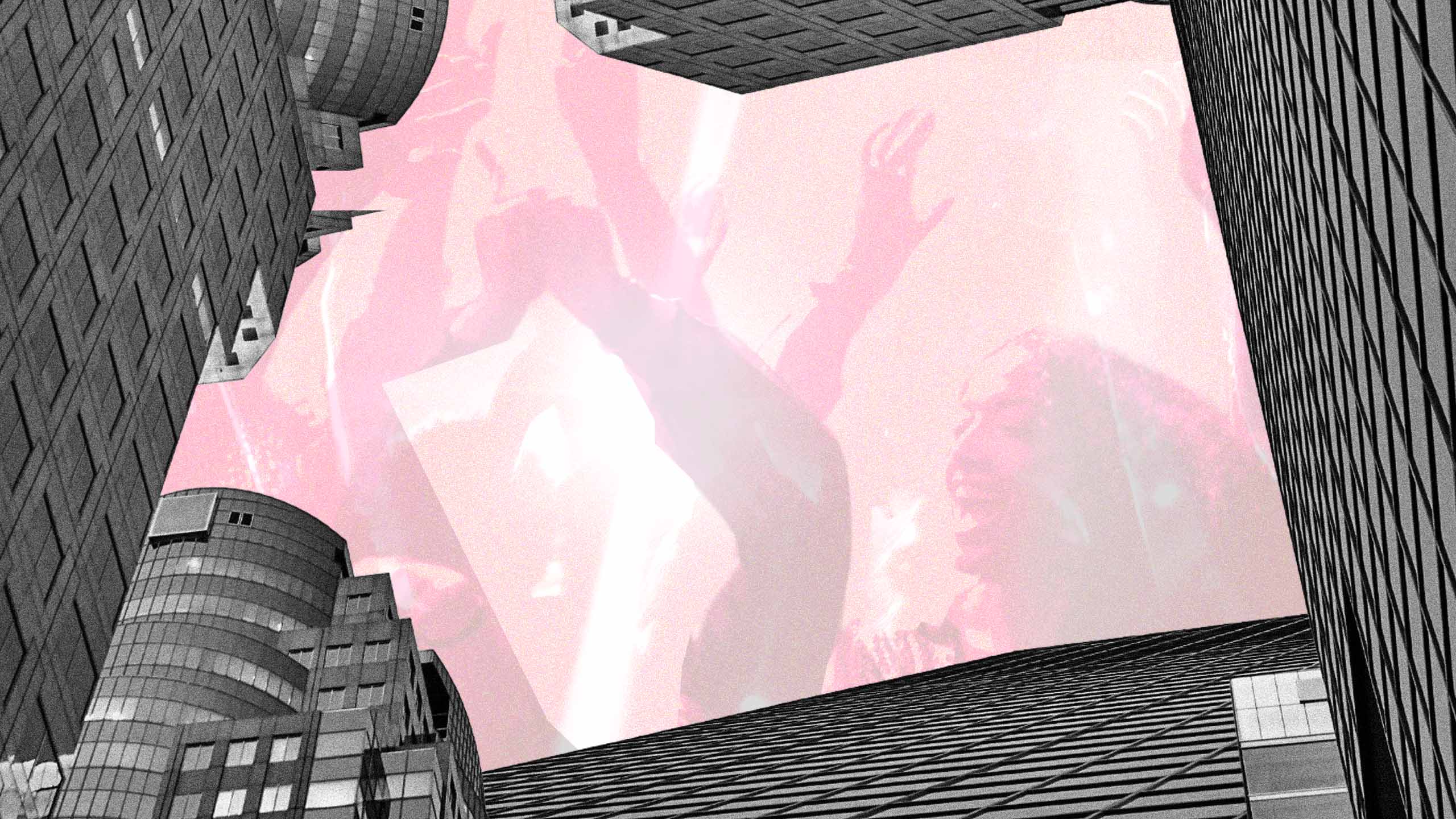Toronto and Montreal have always wanted to be seen as world-class cities. They both offer top-tier restaurants, outstanding attractions and a wide variety of architectural styles. However, when it comes to queer nightlife, Canada’s biggest cities appear to lag behind other international hubs.
Take, for instance, New York City, where last call at the bar is at 4:00 a.m. and queer venues are increasingly sprawled across all five boroughs and not just concentrated in a specific gaybourhood, though Hell’s Kitchen and the West Village still dominate the scene.
Other global metropolises like Berlin, Tokyo and São Paulo allow their bars to remain open and serve alcohol for 24 hours a day. This might elicit some envy from club crawlers in Canada, given that most venues in the country are mandated to stop serving booze earlier—2:00 a.m. in Toronto and 3:00 a.m. in Vancouver and Montreal. But this one issue is just the tip of the iceberg when it comes to the frustrating challenges of maintaining a thriving queer nightlife scene in Canada.
That frustration was on display in a recent Reddit post under the subreddit “GayMenToronto,” after one user asked: “What is Toronto’s gay social scene missing?” The post elicited more than 20 responses with various concerns.
“There’s more gay clubs in Moscow, Russia than there is in Toronto,” one user wrote. “Pathetic really.”
“There isn’t a single gay nightclub, in a metropolitan area of almost 7 million, to begin with. Honestly embarrassing,” another user responded. “[Get] rid of the 2AM last call. Feels like we are stuck in the 1940s.”
For party organizers like Francis Gaudreault, co-owner of Pitbull Events, most of the problems impacting nightlife in Canada stem from a loss of venues and bureaucratic hurdles with municipal governments.
“As much as Toronto and Montreal want to advertise themselves as these nightlife cities, there’s been a huge loss of venues in both cities that have really prohibited parties from growing,” Gaudreault says. “We’re running out of venues, so the options are a tiny bar that can hold 100 to 150 people or a mega club that starts at 1,000. There’s very little middle ground left.”
Gaudreault’s company holds events in Toronto and Montreal every six weeks. They also hold annual parties at Cedars Campground, as well as Toronto Pride and Montreal Pride.
He says one of the reasons venues keep shutting down is because of rising commercial rents that have skyrocketed over the last decade.
In 2014, Toronto’s last big gay dance club, Fly 2.0, shut its doors after the land was sold to a developer to make way for a 34-storey condo building.
Before it closed, the club attracted global DJs and contained two floors with a wraparound mezzanine and a massive disco ball that was illuminated by laser LED lights. It was also used to film recurring scenes for the TV series Queer as Folk.
“More than 10 years later, the loss of Fly 2.0 is still felt among community members who long for the nostalgia of defunct venues like Boots, Stages or Komrads, during the city’s peak nightlife era of the 1990s, when booze was cheap and entry fees were $6 before midnight.”
In 2014, the club’s owner told Xtra that he was initially offered the option to renew his lease, but the landlord demanded a large rent increase and terms that “didn’t make sense.”
More than 10 years later, the loss of Fly 2.0 is still felt among community members who long for the nostalgia of defunct venues like Boots, Stages or Komrads, during the city’s peak nightlife era of the 1990s, when booze was cheap and entry fees were $6 before midnight.
Rising rents, insurance and operating costs have also driven party organizers to raise admission prices.
“We have corporate giants like Ticketmaster and Live Nation buying out all of these remaining venues and then forcing us to use their systems and their ticketing platforms, and this is a mess that ends up making me throw an event that’s out of most people’s price range,” Gaudreault explains.
He says municipalities and “noise police” are partly to blame for Canada’s deteriorating nightlife scene, which has “too many bureaucratic challenges.”
“The reality is that anybody can call a complaint for any reason, whether it’s legitimate or not,” Gaudreault explains. “One of our venues in Montreal, called District, had to spend $90,000 to soundproof their entrance because one specific person in an apartment building across the street complained, like, 200 times in a year about the noise.
“If you’re moving into a neighbourhood beside a venue that’s been there for 30 years, you shouldn’t be able to make a noise complaint,” he adds. “It is par for the course, but it is something that cities do need to work on.”
In Sept. 2024, one of Montreal’s oldest venues, La Tulipe, was forced to close down following noise complaints and an order from the Quebec Court of Appeal to no longer emit sound that could be heard from inside or outside the adjacent building. The decision was made to appease Pierre-Yves Beaudoin, who owns the building next door, even though the venue had occupied its historic location in Plateau-Mont-Royal for more than a century.
Part of the problem stems from a 2016 permit error that zoned the adjacent building as residential. Since then, the venue has dealt with a long-running saga of noise complaints, fines and lawsuits.
A few kilometres away at Champs Sports Bar, the owners are facing similar challenges. In Dec. 2024, the venue was pressured to ban dancing and drag shows following years of frequent noise complaints.
On March 4, the bar was dealt another blow when its operating licence was suspended for five days for previously allowing patrons to dance on the premises without a permit.
Since the beginning of the year, the owners of Champs have been working to secure a new dance permit from the city, and have taken steps to soundproof the venue.
“We do not have any update from the SPVM or the Régie des Alcools regarding the status of receiving our dancing permit,” the venue wrote in a social media post on Instagram. “We have completed all paperwork, paid all fees and done all the soundproofing work, but unfortunately the SPVM and RACJ aren’t restricted to any sort of timeline, so we are required to wait indefinitely for this answer.”
For Montreal media personality and DJ Thomas Leblanc (who has also contributed to Xtra), the changes to queer nightlife over the last two decades have been staggering.
“The mega club is something that’s not necessarily as big as it used to be in the queer community,” he says. “Things are more events-based now.”
Leblanc is the part of a duo behind the queer dance parties Homopop and Super Taste, which are held in Toronto, Montreal and Vancouver.
The loss of the “mega club” has in some ways led to a resurgence of the underground rave scene, which has traditionally been a sanctuary for queer and trans people.
Music collectives like the techno-fuelled groups Pep Rally, Veneno and Precious Cargo have grown in popularity since the COVID-19 pandemic thanks to their electrifying pop-up parties that are typically held in a secluded industrial warehouse outside of Toronto’s downtown core and away from the Church-Wellesley Village.
“Of course every city has an in-village crowd and then there’s an off-village crowd. And sometimes those people don’t mix,” Leblanc adds. “It’s hard to get people to go to the village because it’s seen as a bit more working-class and less sophisticated, but this raises the question about what happens to our queer village?”
“Academics largely agree that these spaces create a sense of community through feelings of belonging, safety and connection that arise from shared cultural, social and political tastes and activities.”
Over the last decade, dozens of scholars have made efforts to understand the cultural significance of LGBTQ2S+ spaces like bars and nightclubs. Academics largely agree that these spaces create a sense of community through feelings of belonging, safety and connection that arise from shared cultural, social and political tastes and activities.
They also provide a place for queer and trans people to meet each other and hook up, but the landscape has changed since the rise of the internet and proliferation of dating apps.
In one study, researchers from the University of Minnesota looked at 17 cities from 14 different countries, including Toronto. They found “the virtual gay community was larger than the offline physical community.” Researchers also noted a decline in number and popularity of gay bars and nightclubs.
For Thomas Leblanc, “the village is a landing pad for so many people, including people from out of town and immigrants who may be newly out [of the closet]. There’s a real risk that if we stop patronizing these places they will go out of business and it’s important that we keep them alive.”


 Why you can trust Xtra
Why you can trust Xtra


